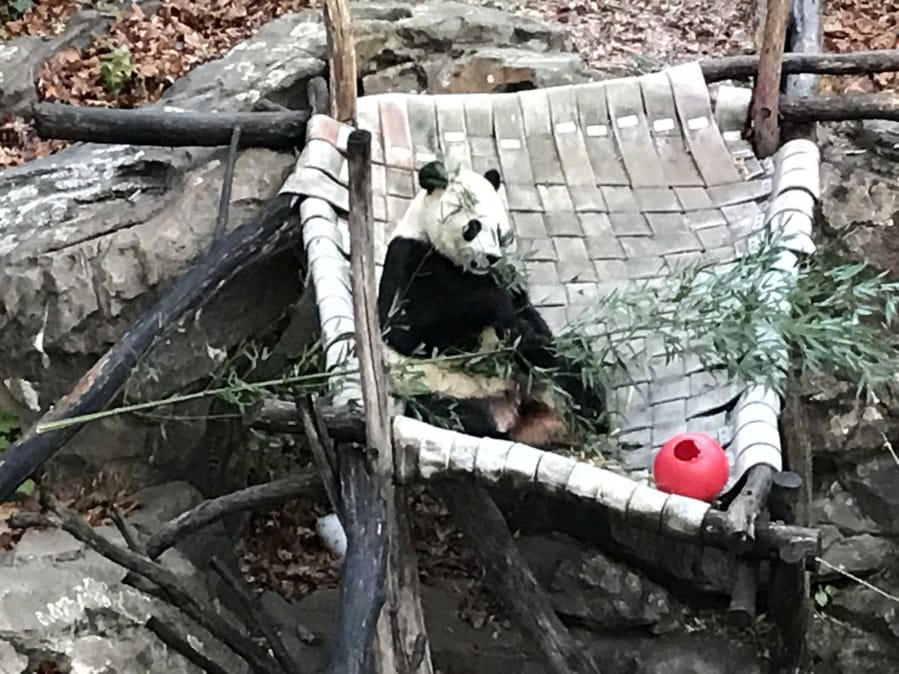BEIJING — Bei Bei is getting used to life in China. But like many Americans on their first trip to a foreign country, he is struggling with the food and the language.
The giant panda cub, born and bred at the National Zoo in Washington, D.C., nevertheless is rapidly acclimatizing to his new environment. He is in a good mental and physical state after his 16-hour journey, said Su Lingxiao, a keeper at the Bifengxia Panda Reserve in Sichuan province, the bear’s home for the next months at least.
The D.C. native arrived in his ancestral home on a special FedEx Boeing 777 nicknamed the “Panda Express” on Nov. 20, and he was transferred to the base in the early hours of Nov. 21. He was initially reluctant to come out of his cage, an 800-pound, custom-made steel and plexiglass crate.
“After patient guidance, communication and consolation, and under the temptation of food, Bei Bei relaxed and bravely stepped out of his cage into the quarantine area,” the Conservation and Research Center for the Giant Panda wrote on its WeChat account.
He was anxious at first. “We saw him pacing in his small enclosure or climbing the handrail, which showed his nervousness,” Su told China News Service.
But it turns out the way to Bei Bei’s heart is through his stomach.
For his first meal in China — breakfast on Nov. 21, although with his jet lag he might have thought it was dinner on Nov. 20 — Bei Bei found the local bamboo to his taste. He ate 13 pounds of the stuff, as well as some carrots.
The 240-pound animal was not, however, impressed with wowotou, a special brown cake especially for pandas, made with soybeans, corn, rice, calcium powder, oil, eggs and sugar. When Su offered Bei Bei a slice of the cake, he batted it away twice with his paw, according to a televised livestream of the meal.
It’s a common reaction.
Two pandas to previously return from Atlanta, Mei Huan and Mei Lun, had a similar response to wowotou. They wouldn’t eat the brown slabs but expressed a strong preference for American cookies. The last panda to arrive from Washington, Bao Bao, was also accustomed to the U.S. version, so her keepers had to stuff the wowotou into her bamboo to get her to eat it. Not enough sugar, perhaps.
Since his first hours, Bei Bei has been doing two of his favorite things from Washington — climbing and tumbling — in his new habitat, complete with trees and a little pagoda for him to hang out in. Also: sitting on his butt eating bamboo.
When he reaches sexual maturity, usually between 6 and 7 years old, Bei Bei will join China’s captive breeding program.
The International Union for Conservation of Nature reduced the giant panda’s threat status from “endangered” to “vulnerable” in 2016. There are thought to be about 1,800 giant pandas living in the wild in Sichuan province.



